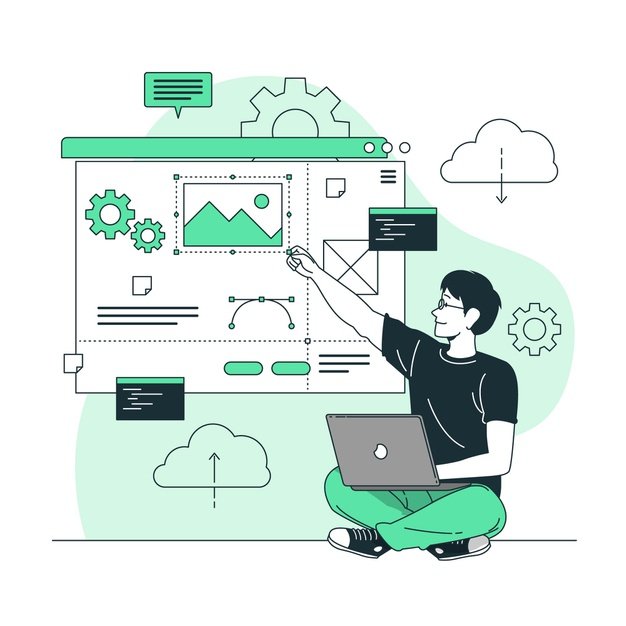Use of AR and VR in Different Industries
The use of virtual reality and augmented reality is prevalent today in all online businesses. According to the report published by Allied Market Research, the global augmented and virtual reality is forecast to reach $454.73 billion by 2030.
The idea is to improve the user experience for app users. As a mobile app development company Dubai, we get to do a lot of AR and VR app projects for different businesses.
In this post, we are going to talk about some of the notable industries where virtual reality is bringing a significant change.
- E-commerce
The top of all is the e-commerce industry. According to a survey, 35% of U.S. respondents use AR to visualize furniture or vehicle customizations.
And this holds true for every kind of e-commerce store, whether you are selling children’s toys, women’s clothes, fashion accessories, or anything expensive or cheap, virtual reality can take the whole experience to a whole new level.
While buying online people don’t get to physically touch or examine the product, so they are naturally reluctant. But when you give them a virtual, 360-degree view of the product, they immediately trust your product.
In-store navigation is an awesome feature likely to be rolled out soon. People will be able to walk around a store with a smartphone and look for the product they need.
- Education
Statista predicts VR will be a $700 million USD industry by 2025. And based on the current situation, with the pandemic disrupting the flow of physical education, education will benefit the most from VR.
Augmented reality makes schooling more interactive, engaging, and close to in-house learning in terms of efficiency. Students can observe a 3D galaxy on their tablets, study science-related topics, see scientific breakthroughs, and even lab lessons as they’d do otherwise while they were in school.
So the education sector is going to experience a positive change once there are ample AR-powered educational apps out there for students to learn complex concepts faster.
- Real Estate
Real estate investments are no fun, one buys a property in exchange for his life savings. So it takes a lot of convincing to sell a single property. And sometimes, the property is located in another state or country, how would a prospect go about this? Virtual reality is a fast and feasible solution.
VR glasses and 3D shots of a property can help the seller sell it in little time, even to someone living in a faraway country. Customers can experience a home differently without even visiting the actual place and save their time.
And since it’s a new concept, not all real estate businesses are using VR to advertise their properties. Besides that, in the pre-construction phase, architects and engineers can clearly visualize the end product using VR technology.
In the coming years, AR and VR are surely going to be a part of all real estate mobile applications.
- Tourism Sector
Tourism is the backbone of all developed countries all over the world. From Europe to the Middle East, Australia, and all the way to Asia, the tourism industry contributes a huge chunk of meat to the local economy.

And it’s not just a single entity but a set of various other sub-elements such as transportation, hotels, hospitality, tours and sightseeing, cuisine, festival experiences, and everything in between. This makes the tourism industry abound with virtual and augmented reality business opportunities.
Though AR and VR have already empowered this sector, it's just the tip of the iceberg. The bigger change is yet to materialize. In the future, AR will facilitate navigation and create shows that draw in tourists. Airport and railway stations will be much more visitor-friendly.
People will travel anywhere in the world without worrying about directions, or finding cheap accommodation. Having an internet would be enough to venture into the unknown. What else would one need? Ultimately, the whole traveling experience will reach a new level.
- Healthcare
Well, I’m not going to stretch it too far (so it becomes indigestible for you), robotic surgery is already common in the United Kingdom, the United States, and a few other developed regions.
The use of AR and VR in healthcare has long been touted as a major advancement, and in the future, it’s going to be as normal as normal healthcare procedures are today.
The idea is to turn complex procedures into safe so surgeons can avoid unforeseeable issues and prevent complications for the patients.
Moreover, AR and VR technology offers virtual operating rooms and virtual organ modeling so medical students and healthcare professionals can learn faster and further sharpen their skills.
Final Words
If you are creating a mobile app, do consider integrating AR and VR features into it. Because the future is about virtual and augmented reality, and rendering a top-notch experience to the end-user.
Be it the e-commerce industry, healthcare, real estate, tourism, or you name it, only those apps will be successful that makes the people feel themselves present right in the scene!